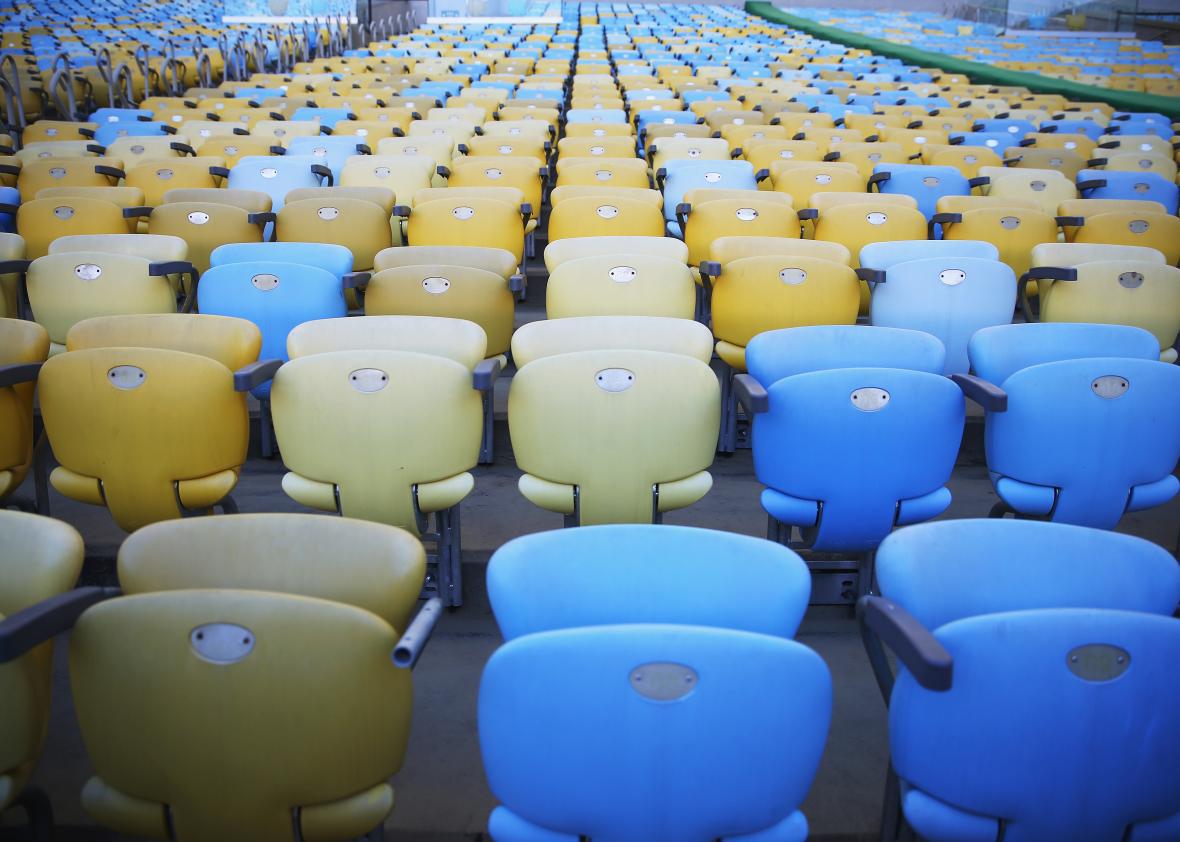The dread that is the run-up to 2016 Summer Olympic Games continues to build.
Not only are the Brazilians dealing with political chaos, social unrest, and a raging malarial virus you may have heard of called Zika, now the World Anti-Doping Agency has suspended the accreditation of a laboratory in Rio de Janeiro that was supposed to be responsible for handling the drug tests for this summer’s Olympic Games.
WADA said in a statement that the suspension, handed down just weeks before the Olympics are scheduled to begin, is “due to a non-conformity with the International Standard for Laboratories,” though it did not specify what those non-conformities were. The statement continues:
The suspension, which took effect on 22 June 2016 when the Rio Laboratory was notified, prohibits the Laboratory from carrying out all anti-doping analyses on urine and blood samples. It may appeal the decision to the Court of Arbitration for Sport within 21 days of receipt of notice.
“In the meantime, WADA will work closely with the Rio Laboratory to resolve the identified issue,” said Olivier Niggli, Incoming Director General. “The Agency will ensure that, for the time being, samples that would have been intended for the Laboratory, will be transported securely, promptly and with a demonstrable chain of custody to another WADA-accredited laboratory worldwide,” Niggli continued. “This will ensure that there are no gaps in the anti-doping sample analysis procedures; and that, the integrity of the samples is fully maintained,” he continued.
The news comes less than two weeks after the International Association of Athletics Federation (IAAF) upheld an Olympic ban on Russian track and field athletes after WADA issued a report alleging widespread state-sponsored doping and corruption. In that case, athletes and Russian track officials willfully circumvented regulations in order to cover-up dirty samples.
In regard to the Rio lab, Niggli said: “Athletes can have confidence that the suspension will only be lifted by WADA when the Laboratory is operating optimally; and that, the best solution will be put in place to ensure that sample analysis for the Rio Olympic and Paralympic Games is robust.”
This isn’t the first time a Brazilian lab has had its credentials revoked before a massive sporting event. As the BBC reported, Brazil was “without a functioning anti-doping laboratory” for the 2014 World Cup. Because the lab could not be reaccredited in time for the tournament, FIFA flew the samples to a testing lab in Lausanne, Switzerland.
